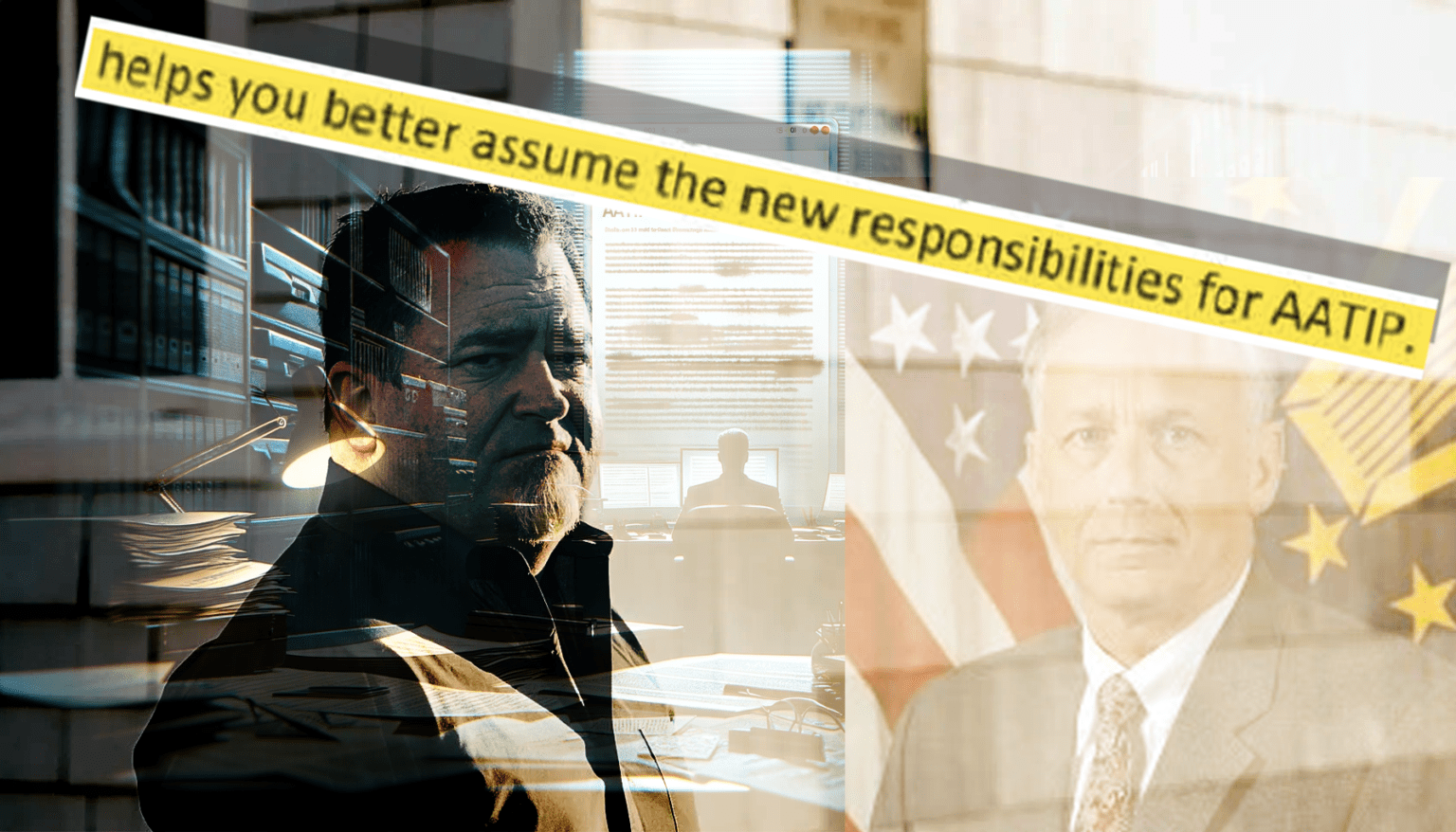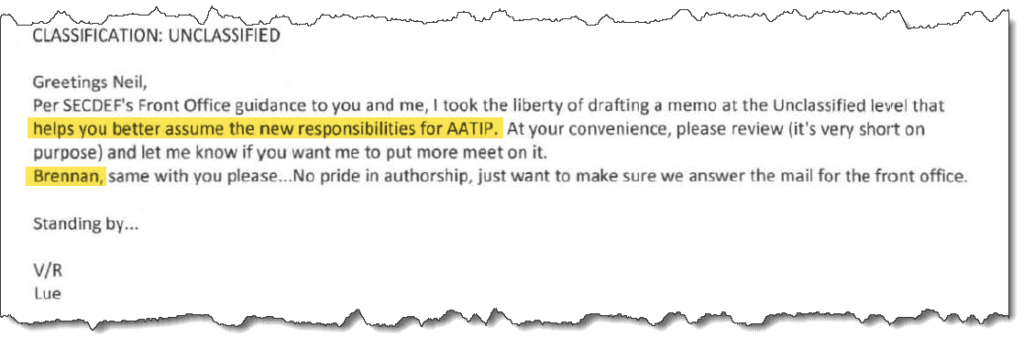
Through a Freedom of Information Act (FOIA) originally filed in June 2021, The Black Vault has just obtained the official release of an email chain involving Luis Elizondo, the alleged former head of the Pentagon’s Advanced Aerospace Threat Identification Program (AATIP), and Neill Tipton, a defense official who previously worked as the Director of Defense Intelligence, Collection and Special Programs. A portion of these emails was initially published by Popular Mechanics in 2020, then later seen as part of a Department of Defense (DoD) Inspector General (IG) complaint submitted by Elizondo in 2021, then later published by the NY Post in 2022. But in the newest FOIA release, the references to AATIP, along with a memorandum written about AATIP and the transferring of duties, was withheld from release and redacted by the DoD, despite the unclassified emails having already been in the public domain for years.
Elizondo has been at the center of controversy since he publicly claimed to have directed the AATIP, a program allegedly focused on studying unidentified aerial phenomena (UAP). His assertions have been consistently refuted by the Pentagon, which denies that Elizondo was ever assigned responsibilities within AATIP. However, the email chain in question, sent by Elizondo to Tipton the same day his first resignation letter was submitted when he retired from the Pentagon, was intended to clarify roles and transferred responsibilities within the AATIP. This seemingly contradicts the Pentagon’s stance on AATIP, Elizondo, and the role he may have played within the program.
Through the public release of Elizondo’s IG complaint by the NY Post, it is well known that Elizondo’s email states that an attached memo, “…helps [Tipton] better assume the new responsibilities for AATIP.” That memo was also written by Elizondo. However, in the official release of the emails already in the public domain, the reference to AATIP in the body of the email is redacted under FOIA exemption (b)(5), along with the entire memo Elizondo had written transferring the responsibilities of AATIP to Tipton.
The two versions can be seen here:
As conveyed by the FOIA release letter, exemption (b)(5) covers “inter- and intra- agency memoranda which are deliberative in nature; this exemption is appropriate for internal documents which are part of the decision-making process, and contain subjective evaluations, opinions and recommendations”.
The redacted line in the email is crucial to the AATIP story, as it directly references AATIP in a manner that supports Elizondo’s claims of some level of involvement in the effort. Though the Pentagon’s decision to redact the line does come as a surprise since the line is not “deliberative in nature” nor does it quite fit in the other areas (b)(5) would exempt. The selective redaction by the government raises questions about the transparency behind what AATIP was and was not.

Also accompanying the email was the draft memorandum that Elizondo had written, though it remains unclear whether it was addressed to the Deputy Secretary of Defense (DepSecDef) directly or written on the DepSecDef’s behalf. The entirety of this document was redacted, obscuring significant content that could potentially further clarify the internal discourse regarding AATIP and Elizondo’s role.
While Luis Elizondo has claimed to have an interest in disclosing information about UAP and AATIP to the public without violating his NDA, his statements have often been met with skepticism and outright denial by the Pentagon. This latest release through FOIA, with the redactions it contains, may suggest a deliberate attempt to obscure Elizondo’s contributions and the existence of AATIP. Despite the public’s access to these documents, the redactions serve as a barrier to full transparency. The reason for it, in this instance, remains unknown.
The Pentagon has maintained a stance of minimal disclosure concerning AATIP and UAP investigations, often citing national security and the protection of sensitive information when referring to the latter.
In response to the redactions, The Black Vault has filed an appeal, challenging the justification for withholding parts of the email and the entire memorandum.
###
